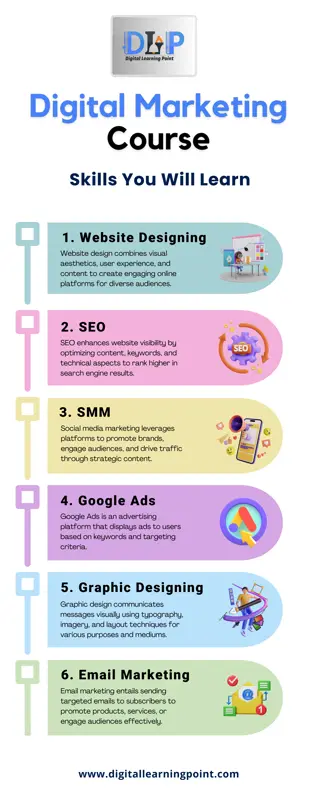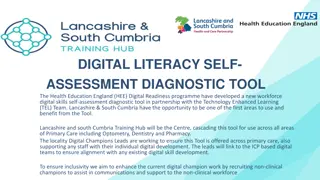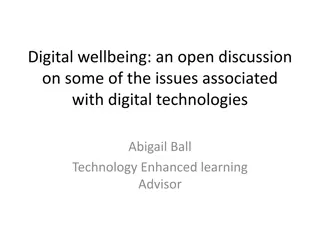Understanding Digital Health: A Comprehensive Overview
Digital health encompasses the use of technology to enhance healthcare delivery, from mobile health to personalized medicine. It involves various digital technologies like wearable devices, telehealth, and health information technology to improve overall well-being. The field aims to leverage information and communication technologies to advance healthcare services and individual wellness.
Download Presentation

Please find below an Image/Link to download the presentation.
The content on the website is provided AS IS for your information and personal use only. It may not be sold, licensed, or shared on other websites without obtaining consent from the author. Download presentation by click this link. If you encounter any issues during the download, it is possible that the publisher has removed the file from their server.
E N D
Presentation Transcript
IN4380 Digital Transformation of Healthcare Lecture 1: What is digital health? Sune Dueholm M ller Associate Professor Department of Informatics January 31st 2024
Agenda Mandatory assignment #1 Metaperspective on digital health and the lectures Definition of digital health The interplay between digital technologies and health The potential for digital transformation of healthcare Goals in digital health Data access and sharing as CSF Challenges to achieving success Steps toward success IN4380 Digital Transformation of Healthcare Page 2
Metaperspective on digital health IN4380 Digital Transformation of Healthcare Page 3
Metaperspective on digital health Lecture 11: Institutional and organizational change in digitalizing health services Lecture 12: Designing and executing digital health services Lecture 13: The digital change agent Lecture 3:Digital infrastructure Lecture 2: Political economy of innovation & governance and legal system Lecture 1:What is digital health? Lecture 7: eHealth and telemedicine Lecture 8: mHealth and wearable technologies Lecture 9: Welfare technologies Lecture 10: Artificial Intelligence and health data analytics Lecture 4: Primary healthcare Lecture 5: Secondary healthcare Lecture 6: Cross-sectoral healthcare Lecture 14: Course summary IN4380 Digital Transformation of Healthcare Page 4
Digital health The field of knowledge and practice associated with the development and use of digital technologies to improve health (WHO cited in Kickbusch et al., 2021: 1730). The broad scope of digital health includes categories such as mobile health (mHealth), health information technology, wearable devices, telehealth and telemedicine, and personalized medicine. ...Digital health technologies use computing platforms, connectivity, software, and sensors for health care and related uses. These technologies span a wide range of uses, from applications in general wellness to applications as a medical device. They include technologies intended for use as a medical product, in a medical product, as companion diagnostics, or as an adjunct to other medical products (devices, drugs, and biologics). They may also be used to develop or study medical products (FDA cited in Kickbusch et al., 2021: 1730). The use of information and communications technologies to improve human health, healthcare services, and wellness for individuals and across populations (Kostkova, 2015: 1). IN4380 Digital Transformation of Healthcare Page 5
Digital health In the future, we might not even speak of digital health, as digital technologies become integral to how health is understood and delivered in keeping with what has happened to other sectors, such as banking (Kickbusch et al., 2021: 1731). IN4380 Digital Transformation of Healthcare Page 6
The interplay between digital technologies and health Digital and the technology ecosystem as determinants of health. IN4380 Digital Transformation of Healthcare Page 7
The interplay between digital technologies and health 4IR Health 4.0 There are clear relationships between digital health concepts, e.g., health 1.0- 4.0, and developments in medicine (Medicine 1.0-4.0) and technology (Web 1.0-4.0). What characterizes the four waves of digital health (next two slides) and how does digital technology drive the transformation of healthcare? IN4380 Digital Transformation of Healthcare Page 8
The interplay between digital technologies and health IN4380 Digital Transformation of Healthcare Page 11
The interplay between digital technologies and health IN4380 Digital Transformation of Healthcare Page 12
The transformative health potential of digital technology IN4380 Digital Transformation of Healthcare Page 13
Goals of digital health Ensuring that the deployment of new tools and innovations serves to promote wellbeing, achieve UHC, and transform health systems and services to better serve patients and communities and keep them safe (Kickbusch et al., 2021: 1729). Ensuring health equity? Health equity is the absence of unfair and avoidable or remediable differences in health among population groups defined socially, economically, demographically or geographically (WHO cited in Kickbusch et al., 2021: 1730). IN4380 Digital Transformation of Healthcare Page 14
Goals of digital health Digital technologies are claimed to: Positively influence the availability, accessibility, acceptability, and quality of health services. Enable preventive, personalized, and mobile health care. Democratize access to health services and empower patients and communities (and particularly vulnerable groups). To what extent are these goals realizable in the Norwegian context? And globally? IN4380 Digital Transformation of Healthcare Page 15
What does it require? Data solidarity in the sense of the collection, use, and sharing of health data and data for health that safeguards individual human rights while building a culture of data justice and equity, and ensuring that the value of data is harnessed for public good (Kickbusch et al., 2021: 1730). Digital health innovations depend on data access. Data sources: 1. Health records 2. Real-life digital trails 3. Virtual digital trails IN4380 Digital Transformation of Healthcare Page 16
Challenges to health equity Competing interests: 1. Individuals (human rights and quality healthcare services) 2. Governments (public health and efficient healthcare service delivery) 3. Private companies (innovation and data monetization) Ad.3. Private actors nudge consumer behavior through the tracking and profiling of personal data. Multinational technology companies are becoming an integral part of health networks and service architecture. IN4380 Digital Transformation of Healthcare Page 17
Challenges to health equity Health and data literacy Trust (data privacy and security) Workflow (healthcare professionals) alignment The transformation in the structure of healthcare is not keeping up with technology development. Regulations, resistance to change (healthcare professionals), and the magnitude of cultural changes slow down the needed transformation. Surveillance capitalism Data colonialism Digital welfare dystopias (citizens control) IN4380 Digital Transformation of Healthcare Page 18
Challenges to health equity IN4380 Digital Transformation of Healthcare Page 19
The way forward Governance architecture: participatory regulatory and accountability frameworks. The focus should be on transparency, explainability, fairness, patient safety, and the validation of use applications of emerging AI and machine learning tools. The governance architecture needs to create trust by empowering patients, ensuring digital rights, and regulating stakeholders. Data collection based on data solidarity (promoting data as public goods while protecting individual rights). Solutions include data trusts and data cooperatives. IN4380 Digital Transformation of Healthcare Page 20
Questions IN4380 Digital Transformation of Healthcare Page 21























